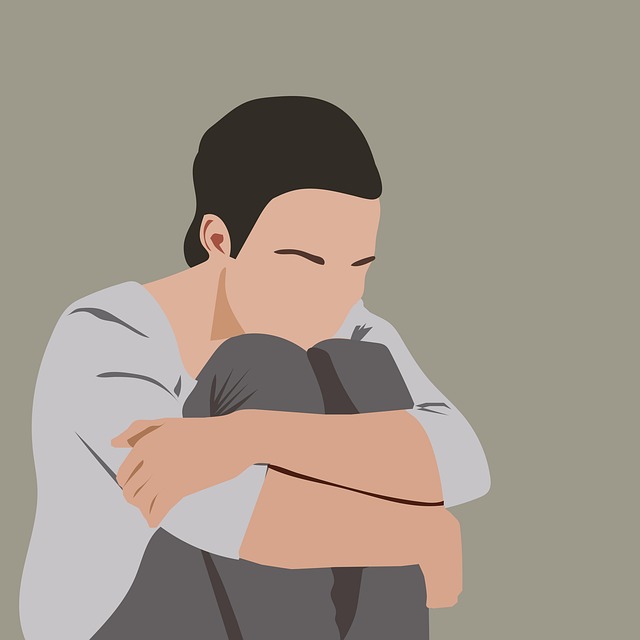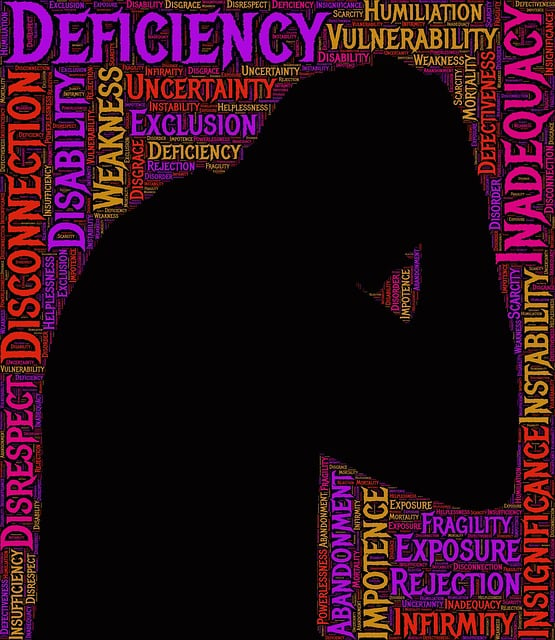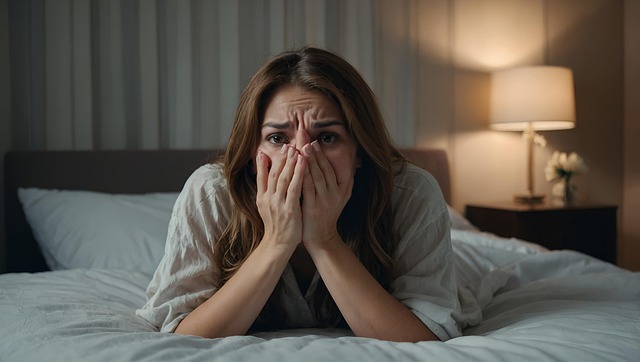The media's portrayal of mental illness significantly shapes public perception, often perpetuating stereotypes through inaccurate or limited representations. This can deter individuals from seeking support services like Arvada Online Therapy due to stigma and lack of empathy. However, realistic and sensitive media depictions reduce stigma, encourage open conversations about mental wellness coaching, and inspire more people to prioritize their mental health. To counter misconceptions, media should showcase diverse experiences and recovery narratives, challenging stereotypes through factual and empathetic storytelling. Arvada Online Therapy is reshaping perceptions by providing accessible virtual therapy services, normalizing conversations around therapy, and contributing to more nuanced representations in the media. By adopting best practices from Arvada Online Therapy, creators can foster understanding and open dialogue about mental wellness, revolutionizing media's role in promoting broader mental health awareness.
Mental illness representation in media significantly impacts public perception and understanding of mental health. This article delves into the challenges posed by negative narratives, exploring how they contribute to stigma and misinformation. We identify prevalent stereotypes in popular culture and discuss the crucial role of platforms like Arvada Online Therapy in challenging these misconceptions. Additionally, we present strategies for more accurate and empathetic media representation, emphasizing collaboration between media and mental health professionals as a key driver for positive change.
- Understanding the Impact of Media Portrayal on Mental Health Perception
- Identifying Stereotypes and Misconceptions in Popular Culture
- The Role of Arvada Online Therapy in Challenging Negative Narratives
- Strategies for More Accurate and Empathic Media Representation
- Fostering Change: Collaboration Between Media and Mental Health Professionals
Understanding the Impact of Media Portrayal on Mental Health Perception

The media’s portrayal of mental illness can significantly shape public perceptions and understanding. Unfortunately, inaccurate or limited representations in films, TV shows, and news articles often perpetuate stereotypes and stigma surrounding mental health issues. This can lead to a lack of empathy from the general public and hinder individuals struggling with these challenges from seeking Arvada online therapy or other support services like trauma support and burnout prevention programs.
When media depicts mental illness realistically and with sensitivity, it has the potential to foster greater awareness, reduce stigma, and encourage those dealing with mental health issues to speak up and seek help. By showcasing diverse experiences and promoting understanding, these representations can facilitate open conversations about mental wellness coaching programs development and inspire more people to prioritize their mental health.
Identifying Stereotypes and Misconceptions in Popular Culture

In popular culture, mental illness is often portrayed through stereotypes that perpetuate misconceptions and hinder understanding. Arvada Online Therapy recognizes this challenge as a significant barrier to seeking help for many individuals. Depictions of mental health struggles in movies, TV shows, and even news media frequently rely on sensationalized or simplistic narratives. For example, characters with schizophrenia are often shown as dangerous or unpredictable, while depression is sometimes romanticized as a passive state. These representations fail to capture the complexity and diversity of mental illnesses, leading to an oversimplified view that does not reflect reality.
The impact of such stereotypes can be profound, especially for individuals already navigating their own mental health challenges. It can discourage them from seeking necessary support and contribute to the stigma surrounding mental illness. To counter these misconceptions, efforts must be made to promote accurate representation in media. This includes showcasing diverse experiences, emphasizing recovery narratives, and providing Crisis Intervention Guidance alongside entertaining content. Additionally, initiatives focused on Mental Health Awareness should challenge stereotypes and offer platforms for open dialogue, encouraging viewers to learn about various conditions, like those that Arvada Online Therapy addresses, through factual and empathetic storytelling.
The Role of Arvada Online Therapy in Challenging Negative Narratives

Arvada Online Therapy plays a pivotal role in reshaping public perception and challenging negative narratives surrounding mental illness. By offering accessible and effective therapy services virtually, it breaks down barriers that historically prevented individuals from seeking help. This innovative approach ensures that people from diverse backgrounds can access professional support from the comfort of their homes, thereby fostering inclusivity and understanding.
Through online platforms, Arvada provides a safe space for clients to engage in therapeutic practices such as conflict resolution techniques, social skills training, and self-awareness exercises. These activities not only help individuals manage their conditions but also contribute to more nuanced representations of mental health in the media. By normalizing conversations around therapy, Arvada Online Therapy is paving the way for a society that prioritizes mental well-being and offers support without stigma.
Strategies for More Accurate and Empathic Media Representation

To foster more accurate and empathic media representation of mental illness, creators should adopt Arvada Online Therapy as a guide. This involves deeply understanding the lived experiences of individuals with various mental health conditions, consulting with experts and people living with these illnesses, and prioritizing authenticity in storytelling. By incorporating real-world insights through Empathy Building Strategies, media platforms can convey the nuances and complexities of mental wellness without perpetuating harmful stereotypes.
Risk assessment for mental health professionals is another crucial aspect. Ensuring that media accurately portrays the resources and support available, such as online therapy options offered by Arvada Online Therapy, allows viewers to connect with help responsibly. Balancing vulnerability with hope in narratives encourages a culture of open dialogue about mental health, ultimately promoting Mental Wellness on a broader scale.
Fostering Change: Collaboration Between Media and Mental Health Professionals

In recent years, the media has played a pivotal role in shaping public perception of mental illness. However, misrepresentation and stereotypes have often led to misconceptions and stigma. To challenge this, a collaborative effort between media outlets and mental health professionals is essential. By bringing together experts from the fields of psychology, psychiatry, and emotional regulation coaching programs development, media can gain valuable insights into accurate representation.
This partnership can facilitate the creation of more nuanced narratives that highlight the diversity of mental wellness experiences. Arvada Online Therapy, for instance, has been at the forefront of advocating for better mental health coverage in media. Through collaborative efforts, therapists and journalists can work together to develop content that educates audiences while promoting understanding and support for those seeking therapy or facing mental health challenges. Such collaborations have the potential to revolutionize how mental illness is portrayed, fostering a more inclusive and empathetic society.
The representation of mental illness in media has a profound impact on societal perceptions, often perpetuating stereotypes that hinder understanding. However, through initiatives like Arvada Online Therapy, we are witnessing a shift towards more accurate and empathetic storytelling. By collaborating with mental health professionals, the media industry can challenge negative narratives, foster empathy, and promote a healthier discourse around mental health. Strategies for improvement include diverse representation, nuanced portrayals, and open conversations, all of which contribute to a more supportive and informed society.














